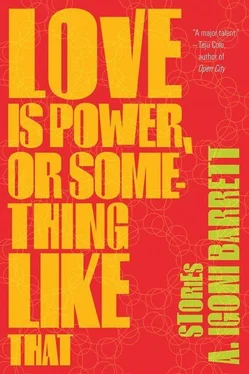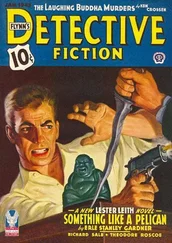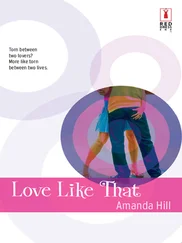“Daddy,” she said quietly; and then bent forward to slap his knee. “Daddy!”
He twitched awake and blinked at her. He cleared his throat and swallowed, then stuck his little finger in his right ear and shook his head, his cheeks slapping. He wiped his finger on his shirtfront.
“What is it, baby?”
“Daddy, Daddy. . Mummy. .” Daoju said, but the look in her father’s eyes, that placid stare of the broken beast, corkscrewed through her gut. She doubled over with a moan and slumped to the floor, and then began to cry, her misery a steady drizzle.

The day dragged for Daoju after she returned to her room. The change in her father, which she had hoped was transitory, was clearly deep-rooted. He would never again in her mind be the man he once was. To her, who had loved with all her heart what he represented — the solid, unchanging image that bore the name Daddy — this poor replica, this weakling, was an enemy, and she hated him as much as she had loved her father.
That night, in the sitting room, her mother resumed the insults. After several minutes of silent suffering, Daoju, her lips puckered into an O, rose from her seat in front of the TV and marched toward the barred front door.
“Where are you going?” Perpetua demanded.
Daoju did not reply, did not falter, and did not halt.
Perpetua turned to Godspeed. “Won’t you ask her where she’s going? Look at the time!”
Daoju was unlocking the door when he spoke. “Baby, where are you going?”
“Out,” she said, and glanced over her shoulder at him, her hand on the doorknob.
“Out where?”
“Out of this house, away from you two. God, you make me sick!”
“Daoju!” Perpetua cried out, half rising in her chair. “What did you say?”
Godspeed flapped his hand at his wife. “Calm down, sit down.” To his daughter he said, “That’s going too far, Daoju. You can’t talk to your mother and me that way. Close the door and come back here.”
“I’m not coming. I am going.”
Godspeed held the arms of his chair and levered himself to his feet. Pointing his finger at Daoju, he raised his voice. “I’m warning you, young lady, come back here now!” Then he coughed, his breath wheezing in his chest.
Daoju threw back her head and laughed as her parents watched in amazement. Then she looked her father in the eye and spat out, “You’re not man enough to stop me from leaving this house.” The door banged shut behind her.
Perpetua faced Godspeed. His hands were shaking, his lips trembled, he seemed about to fall over. She felt the urge to clap in his face, to tell him that all those years he had spoiled their daughter, treated her like a wife, this is what it amounted to, a door slammed in his face. Yet when she opened her mouth the words wouldn’t emerge. She pitied him, quivering in front of her without shame or the pretense of a fighting spirit. Victory is not stomping an opponent that something else had laid low. She rose, walked up to him, and took his arm. At the touch of his skin, warmth flowed into her; compassion quickened her breath. She eased him back into the chair and said, “Easy, my dear, forget what she said. She’s just angry at the way things are. She’ll come back and apologize, you’ll see.”
The words barely out of her mouth, Perpetua cocked her head and listened, sure she had heard the gate. There were footsteps approaching. “I told you, she’s back already,” she said in a triumphant tone, and sat down beside her husband to await Daoju’s entry.
The front door burst open and Daoju stagger-ran in, fell in a sprawl. Perpetua screamed, clapped a hand to her mouth, then slid out of the chair and sank to her knees. Six, seven, eight men barged in through the door, bearing automatic rifles. The man in front had a crowbar hooked over his shoulder, and another grasped a machete, its blade glistening red. Godspeed, as he rose from his seat, glared wildly at Daoju, searching for blood.
“You, fat man, down on the ground!” ordered the man with a crowbar on his shoulder.
Godspeed dropped to his hands and knees, crawled quickly across to his daughter, and lay facedown beside her. Perpetua, too, stretched out on her belly and covered her head with her arms. Low sputtering sounds emanated from her, and, now and again, like an expletive, she hissed, “Jesus!” One of the men stepped forward and nudged her thigh with his mud-crusted boot. “Get up, prayer warrior. Show us the money.”
As Perpetua led them through the house they slapped her eleven times. They ransacked the bedrooms, took her jewelry box, her daughter’s gold locket and antique silver charm bracelet, her husband’s red coral studs and ivory cuff links and Breitling wristwatch, all the valuables they could find, all the Anabrabas had left. Then they returned to the sitting room and kicked Godspeed, beat him with their fists and gun butts, cut his forehead, sprained his arm, and broke his ring finger as they yanked off his wedding band, but in spite of the punishment, despite the threats, there was no money to be got. When they demanded the keys to his car and he gasped out that he had none, the robbers had enough.
“You want to waste our time?” the crowbar robber yelled. “You live inside this big house and you’re a fucking poor man!” He paused, glanced at Daoju sobbing in her father’s arms, and a gleam entered his eyes. “But we won’t go just like that. We will teach you a lesson.” He turned to his men and said, “I go do the girl first,” and then unslung the crowbar from his shoulder and tossed it to the floor, where it clattered loudly. “Bring her here. Make una start with the woman.”
“Over my dead body.”
After he spoke, Godspeed climbed to his feet. His right arm, swollen at the elbow, was cradled in his left hand, with its broken finger hanging by skin. He stared at the line of men, and they glared back — bristling like hyenas circling for the kill — and raised their rifles.
“What did you say?” the crowbar robber barked. He strode forward a few steps, looked Godspeed up and down. Then he said, in a low, mellow voice, at once a tone of warning and reasoning: “If you want to die, repeat what you said.”
Someone tittered with excitement. The robbers waited for Godspeed to beg, to plead for his women, to back down. With each second that ticked, the scent of blood grew thicker.
“Daddy, please, it’s all right,” Daoju whispered, and stretched out her hand to her father, her face a mask of dread. Perpetua, sprawled on her side, did not stir.
“Daddy, please, listen to your daughter,” one of the robbers lisped. Then he grabbed his crotch and thrust his hips rapidly back and forth, to raucous laughter.
Godspeed glanced down at his daughter and saw the infant he once saved, and he turned away, his jaw trembling. He stared at the ceiling, bit his swollen underlip, and renewed his pledge. He would not fail. He was ready; only one thing remained. He looked at Perpetua, stared at her bowed head until she sighed weakly and raised her face. I love you too, he mouthed. Her eyes widened, moistened, and she brushed the tears away, anxious to hold his gaze. Then she nodded — and was still nodding when the grandfather clock tolled.
A Nairobi Story of Comings and Goings
Let’s call her Leo. White, thin, auburn-haired, South African. Clan mother to waifs, yet childless herself, monthly mourning missed chances. Fierce as the Chinese dragon, green and red inked, bug-eyed and fire-spitting, tattooed on her back, under her left shoulder. Rebel, polymath, denim-jacket-and-jeans-wearing Leo, swaggering helter-skelter in her grubby tennis shoes, puffing her reefers with a GI Jane sneer, holding her own with the playground bullies, the boys.
Читать дальше


![Сьюзан Кейн - Quiet [The Power of Introverts in a World That Can't Stop Talking]](/books/33084/syuzan-kejn-quiet-the-power-of-introverts-in-a-wo-thumb.webp)










